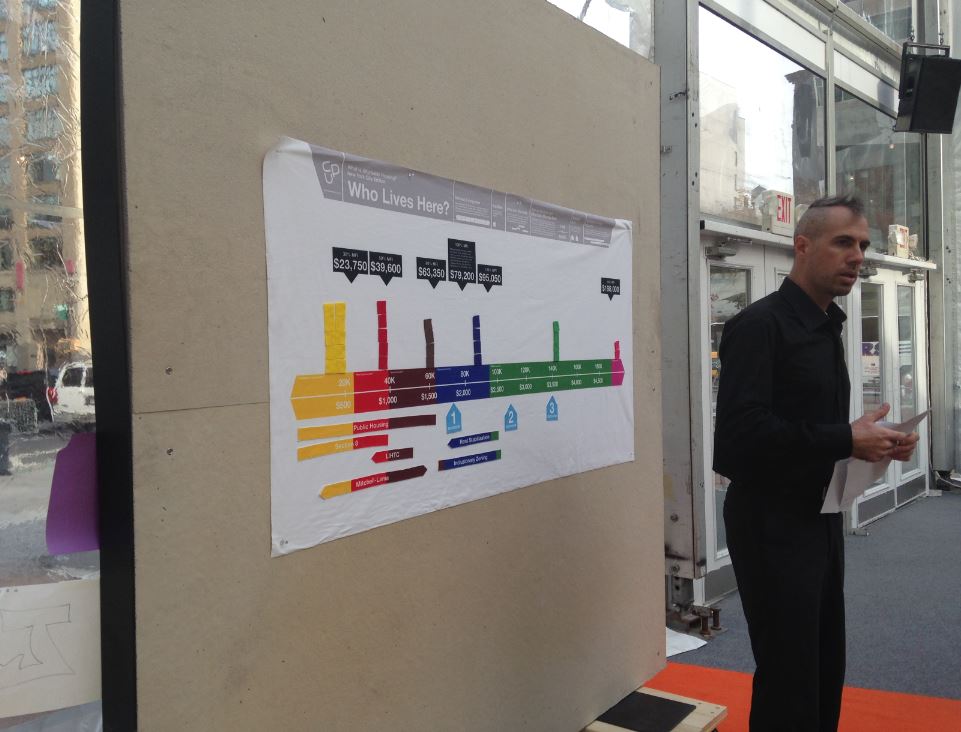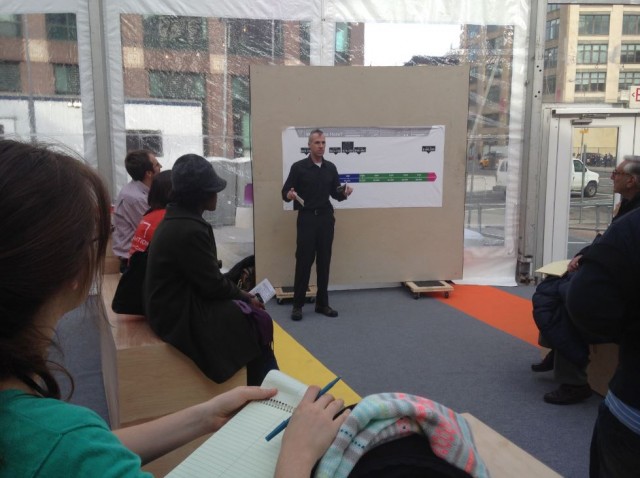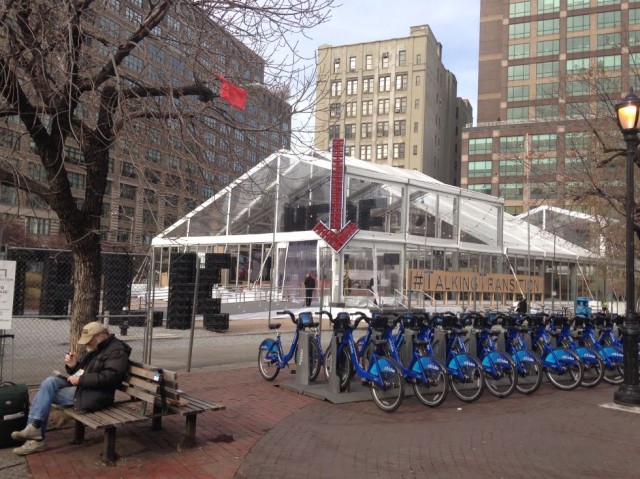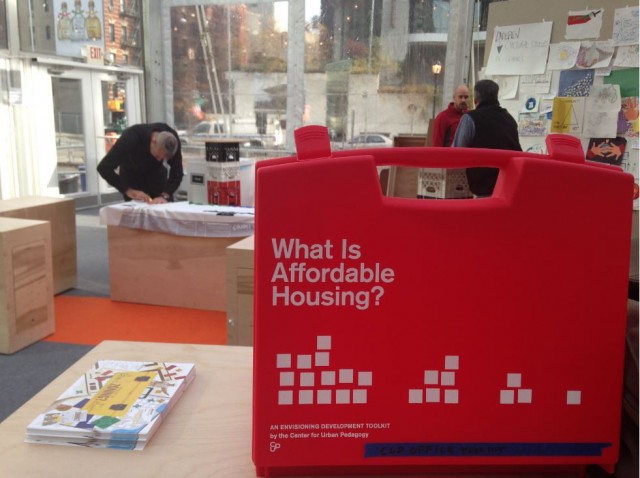
Talking Transition is an innovative civic engagement project that began with public meetings (11/9 through 11/23) in advance of the new mayoral administration. The initiative is organized and funded by the Open Society Foundation, working with other groups active in city programs. As described on the project website:
“Talking Transition is an open conversation about the future of New York City. Over two weeks, New Yorkers came together online, in the streets, and in a pop-up tent on Canal Street to help shape the transition to a new mayor. Tens of thousands of New Yorkers engaged. The mayor-elect embraced the process. Sign up and stay tuned to see the results.”
The challenge of finding affordable housing is a core question for New York going forward. CUP, previously profiled in City Atlas, led a session on the subject.
CUP (The Center for Urban Pedagogy) took the stage at the Talking Transition tent on Friday, November 15th, to educate audiences on affordable housing in New York City. CUP is a nonprofit organization that uses design and art to increase civic engagement, collaborating with designers, educators, advocates, students, and communities to construct educational tools that bring clarity to complex policy and planning issues. One valuable product from CUP’s research is the Affordable Housing Toolkit. At the Talking Transition tent, CUP’s Mark Torrey was able to easily convey the basis behind NYC affordable housing to a crowd that previously seemed to have limited knowledge on the subject.
 Torrey’s interactive workshop toolkit consisted of a felt chart that allowed spectators to visually understand income demographics, rents, and affordable housing eligibility (shown in the figure above). During the workshop, Torrey introduced and explained in brief detail affordable housing programs that have helped shape NYC, such as NYCHA public housing, Section 8, LIHTC (Low-Income Housing Tax Credit), and Mitchell-Lama which all target low-income households, as well as rent stabilization and control, the Inclusionary Housing Program, and the 421-A program which all target lower-middle- to middle-income households.[pullquote align=”left”]Housing matters: many New Yorkers spend more than half of their income on it.[/pullquote]
Torrey’s interactive workshop toolkit consisted of a felt chart that allowed spectators to visually understand income demographics, rents, and affordable housing eligibility (shown in the figure above). During the workshop, Torrey introduced and explained in brief detail affordable housing programs that have helped shape NYC, such as NYCHA public housing, Section 8, LIHTC (Low-Income Housing Tax Credit), and Mitchell-Lama which all target low-income households, as well as rent stabilization and control, the Inclusionary Housing Program, and the 421-A program which all target lower-middle- to middle-income households.[pullquote align=”left”]Housing matters: many New Yorkers spend more than half of their income on it.[/pullquote]
The workshop also educated participants on the linkages between Median Family Income (MFI) and average housing/rental costs, surprising many with the fact that a staggering number of NYC residents spend over a 1/3 of their income on housing, with many spending over 1/2 of their income.

People may have entered the workshop with only personal experience as a guide, and left an hour and a half later with a clear understanding of housing and the policies that influence it. CUP’s toolkit proved a success in quickly educating people.
To explore more workshops and toolkits on other systems, policies, and plans, visit CUP’s homepage!
